Write Us
We are just a call away
[ LET’S TALK AI ]
X
Discover AI-
Powered Solutions
Get ready to explore cutting-edge AI technologies that can transform your workflow!

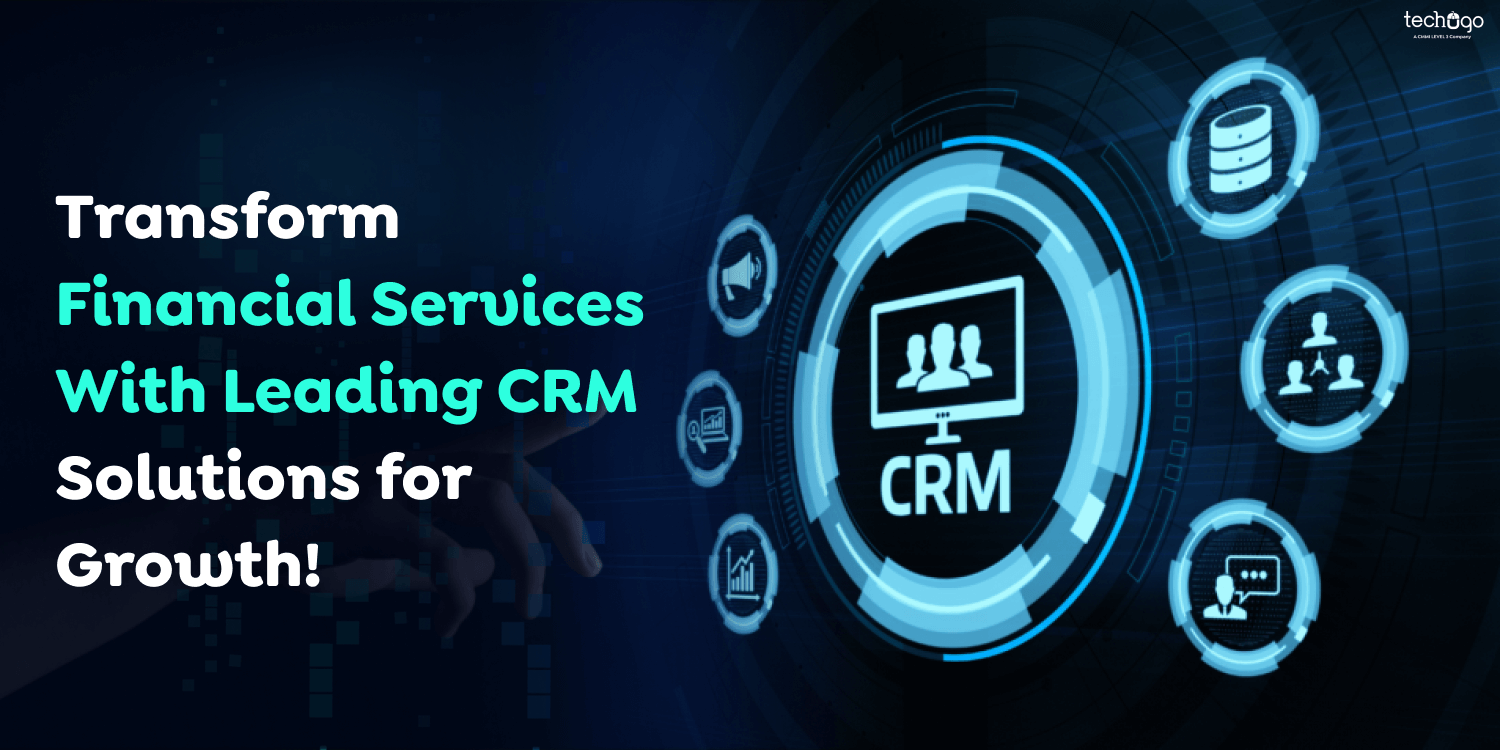
The financial services industry relies on clients; therefore, customer relationship management CRM software becomes essential. Banks, investment houses, insurers, and other players in the monetary circle use CRM to facilitate communication, improve quality, and boost client revenue. CRM solutions are tools for handling customer data, individualizing interactions with them, and meeting the requirements of applicable legislation to contribute to time efficiency and trust.

This article outlines CRM’s critical competency for financial service industries and how these systems help upgrade customer relations, make operations effective, and maintain compliance. We will also look at some of the best CRM solutions available in the market that focus on the needs of financial companies. In addition, we will show you how to choose the appropriate CRM solution that meets your organizational needs and how to implement it to unlock more client value and power to develop an app in the prevailing challenging environment.
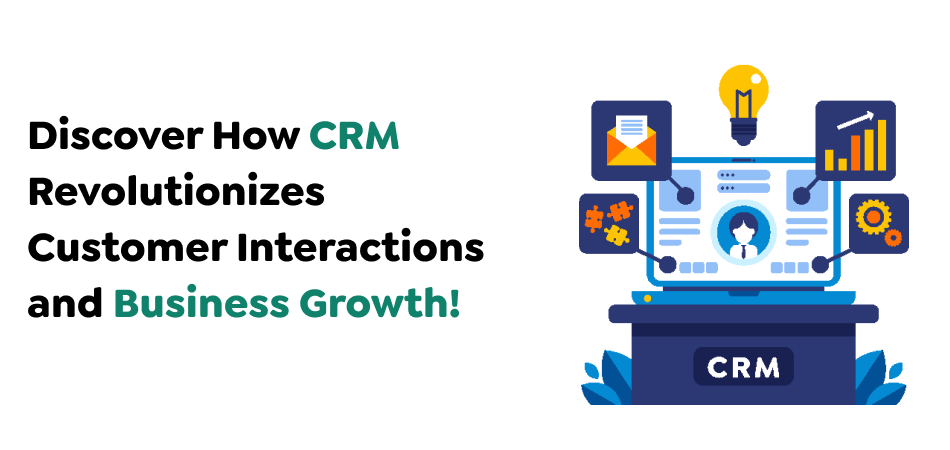
CRM is a business model that focuses on the organizational interaction with the customers and managing the customer information throughout the whole lifecycle. CRM applications bring benefits to managing a business’s online processes, improving the quality of services provided to clients, and, as a result, strengthening interactions with customers by offering tools to consolidate and structure information about clients, control interactions, and facilitate related tasks. Integrating CRM software into businesses enhances customer satisfaction and sales, which leads to the organization’s growth from clients’ points of view.
Finally, CRM’s primary purpose is to inform organizations about their customers’ requirements and how to develop the necessary sales channels. It also helps battle churn and foster customer loyalty.
Also Read : Game-Changing Mobile App Development Trends for 2025 You Need to Know
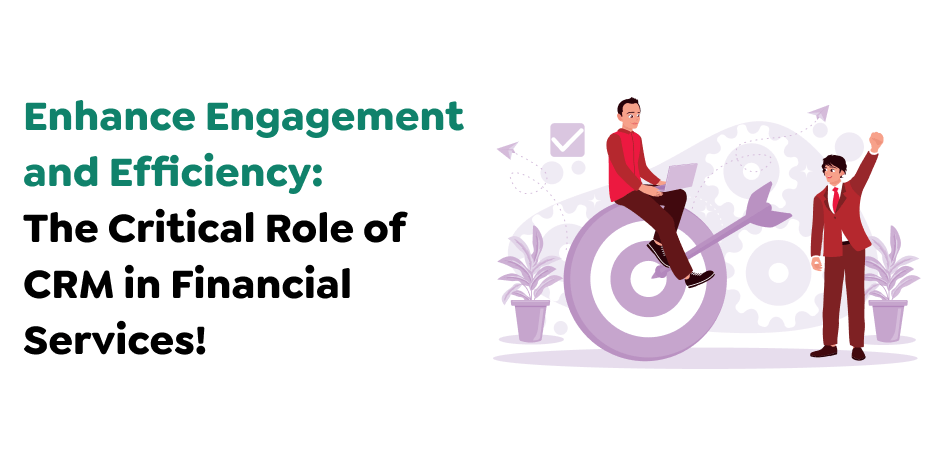
Currently, competition exists within the financial service industries, including banks, insurance, asset management, and fintech companies. This is mainly because customers ‘ engagement and operational efficiency are critical success factors. These mobile apps for businesses use CRM software to monitor communication, adapt the offered services, and obtain important consumer information.
The benefits of CRM software in financial services include:
Also Read : Nearshore Software Development: A Cost-Effective and Efficient Solution for Outsourcing
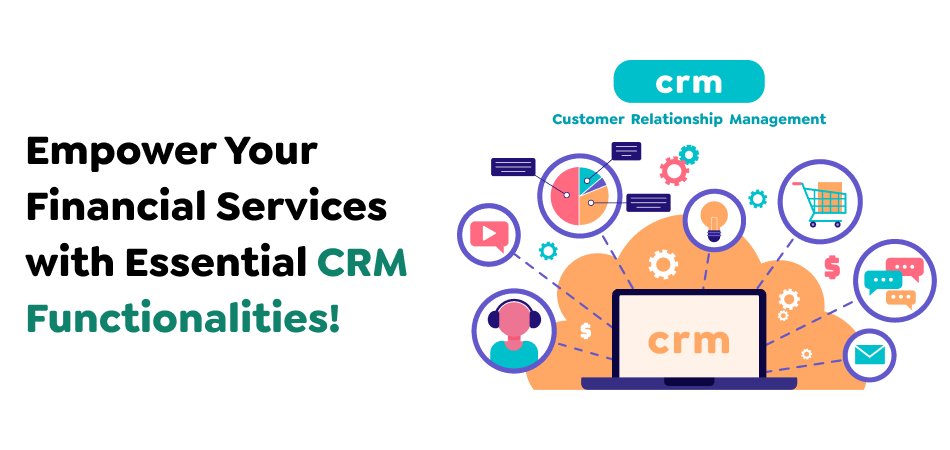
The usual feature set of a financial services CRM consists of several industry-specific features not present in other systems. Here are some of the core functionalities:
Financial institutions need to understand their customers deeply. This helps them gather all the necessary data from and about the client, including the economic portfolios, transactions, and even communication preferences, in one place, referred to as the client profile. This makes it possible for those in the financial prosperity sector to suggest appropriate measures and provide services that benefit the clients.
CRM systems help track possible customers and convert them into clients by following their paths and preferences. Lead scoring is a process of ranking leads based on their potential for making a purchase, and analysis tools show how to target these prospects.
Also Read : A Comprehensive Guide to Content Management Systems
CRM automation enhances efficiency by eliminating repetitive procedures, such as setting follow-up reminders and updating the client database. In financial services, marketing automation increases efficiency, allowing employees to focus on tasks that add more value to the client, such as advice.
The essence of compliance in financial services cannot be overemphasized owing to the rigidity that characterizes control over data and money. An effective CRM solution may be delivered with compliance aids to address the GDPR, ML, and KYC challenges and ensure the client’s data does not lead to costly fines.
Also Read : Franchise Compliance Software Tools: How to Choose the Right Solution?
This technique partitions clients based on asset level, risk appetite, or product choice. With the proper categorization of the clients, financial firms can package their mobile app marketing and advisory solutions to address the needs of each segment, thus improving conversion and client traction.
Good CRM software supports a multi-channel solution, meaning customers can interact via phone, email, live chat, or social media presence. This means customer service does not become disbanded or lack the timely responses clients expect when using a particular platform.
Data analysis in CRM software helps financial institutions make the best decisions. The tools will likely comprise a dashboard of different forecast and analytical reports, which paint revenue, churn rate, and customer satisfaction.
Also Read : AI’s Impact on Efficiency, Risk Management, and Insurance Software Development
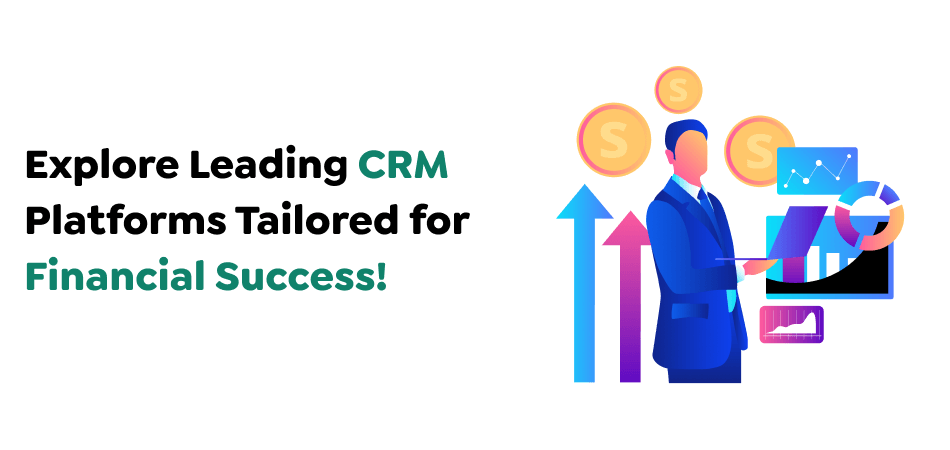
Selecting the right CRM program is becoming challenging, with the number of options increasing yearly. Below are some of the best CRM software for financial services, each with unique features to suit the industry.
Salesforce is the world’s premier supplier of CRM solutions, and its Financial Services Cloud is configured to meet the needs of the finance sector. Available features include relationship management software development, compliance, and customer segmentation. Salesforce offers its users AI-derived analytical tools and solutions to help financial advisors better address their clients, as well as data security measures and solutions to ensure that organizations meet the regulatory requirements in the financial services sector.
Best For: Customers who seek a centralized system for all necessary CRM operations in a financial company.
Notable Features: Include innovative tool management, client information data, goal-setting directions, relationship displays, and compliance features.
Another strong player in the CRM market is Microsoft Dynamics 365, which offers countless opportunities for customizing finance apps. It is well integrated with the Microsoft Office suite, especially for firms that extensively use other Microsoft products such as Excel and Outlook. Some of its elements are client profiling, lead scoring, and regulatory compliance.
Best For: Medium to large-size financial service providers who want integration with Microsoft solutions.
Notable Features: Empowered dashboard, LinkedIn Sales Navigator integration, Sales Cloud analysis, and financial management capabilities.
Today, NexJ CRM focuses on financial services. It has features designed for wealth management, private banking, and insurance. These cover customer engagement, such as omnichannel support, relationship intelligence, and AI-based recommendations. NexJ’s concentration on the financial services sector guarantees vast awareness within industry expectations.
Best For: Wealth management and insurance companies can benefit from a specially developed CRM system.
Notable Features: Include relationship management powered by Artificial Intelligence, compliance coverage across business processes, and engagement across all channels.
Zoho CRM solution is a flexible and configurable system for small to medium financial organizations. It provides process automation, analysis tools, and multiple communication options. However, Zoho is relatively more affordable than many other CRM systems, making it affordable for every firm’s budget.
Best For: New, small financial firms searching for an efficient, cost-effective solution.
Notable Features: Include lead capture and management, intelligent data analytics, integrated marketing automation, and Salesforce CRM Mobile.
Another CRM is HubSpot. It is straightforward to use and focuses on marketing and sales automation. For financial firms, HubSpot provides all the necessary features to work with clients, track interactions, and generate individual marketing offers. Although HubSpot may not have some of the more sophisticated compliance functions, the tool is well-suited for any firm that wants to grow and market its services.
Best For: Financial firms that differentiated on client acquisition and marketing.
Notable Features: Sales pipeline, leads tracking, email marketing, customer support systems.
Also Read : Investing in Manufacturing Inventory Management Software: Costs and Benefits
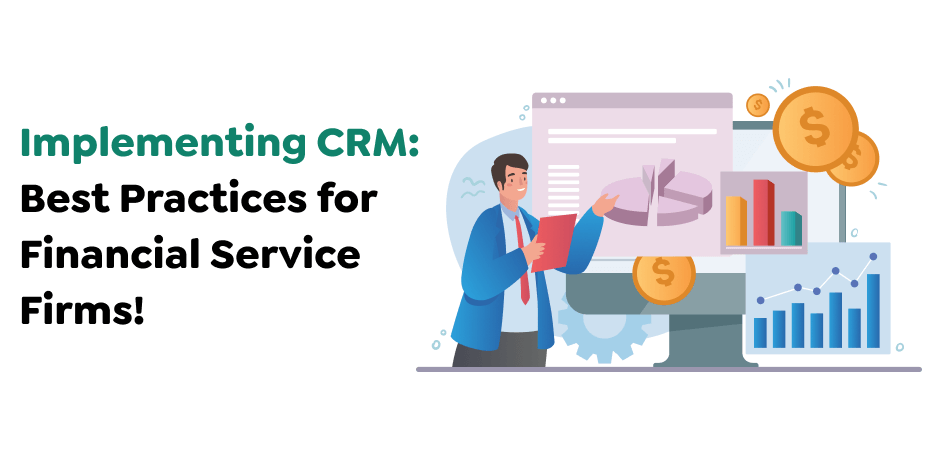
CRM software can be handy when applied correctly in the broad area of financial services. Still, this function is typically majorly enhanced when a firm plans well before applying the software. Here are essential guidelines to consider:
Always define what you want to gain using CRM software, including customer satisfaction, an increase in sales, or compliance. Set appropriate benchmarks that will be used in evaluation to determine CRM success and the extent of implementation.
Select a CRM solution that will provide sufficient data security and protection and meet the requirements of the finance world. Encryption, role-based access control, and compliance, as inherent features of the solutions, will help protect customers’ data and avoid potential risks.
A CRM system should also be easily scalable; that is, it can grow relative to the increase in data size, number of users, and other related utilities. Choose a universal offer that can quickly adapt to the business’s changing requirements.
Also Read : HOA Management Software: Insights to Learn!
Compatibility means your CRM solution is effectively integrated to complement other web applications, such as an accounting tool, document management portal, and communication channel. Integration at the correct time will help make workflows more efficient when using data.
However, that is not the case, and CRM implementation will only work if your team feels safe engaging with the platform. Therefore, provide detailed training to your staff to learn how to use each aspect of CRM and its compliance and data security features.
Schedule and perform routine tasks such as data entry, follow-up reminders, and e-mail marketing. This saves time and minimizes the possibility of errors made by personnel making the entry.
Find out how to evaluate your CRM usage constantly to improve it. By reviewing and analyzing data obtainable from CRM applications and user feedback, firms may improve their work processes, segment customers more accurately, or modify their lead-scoring models.
Also Read : Documenting the Future: The Power of HR Document Management Software
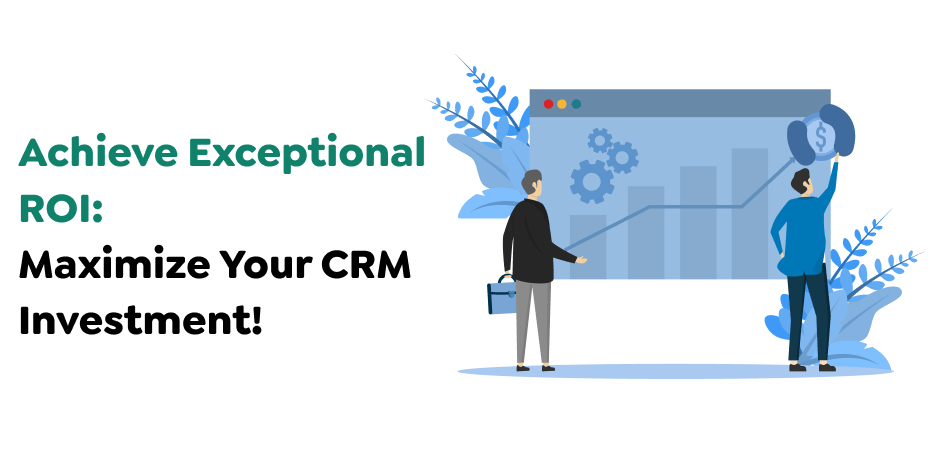
A CRM solution implies a significant investment app and must be optimized for maximum ROI (return on investment). Here’s how to get the most out of your CRM for financial services:
Also Read : Streamlining Operations With The Best Order Management Software Solutions

Selecting the most suitable partner for CRM development is one of the critical tasks for financial services companies willing to improve customer relationships and increase sales. Techugo stands out as an exceptional choice for several reasons:
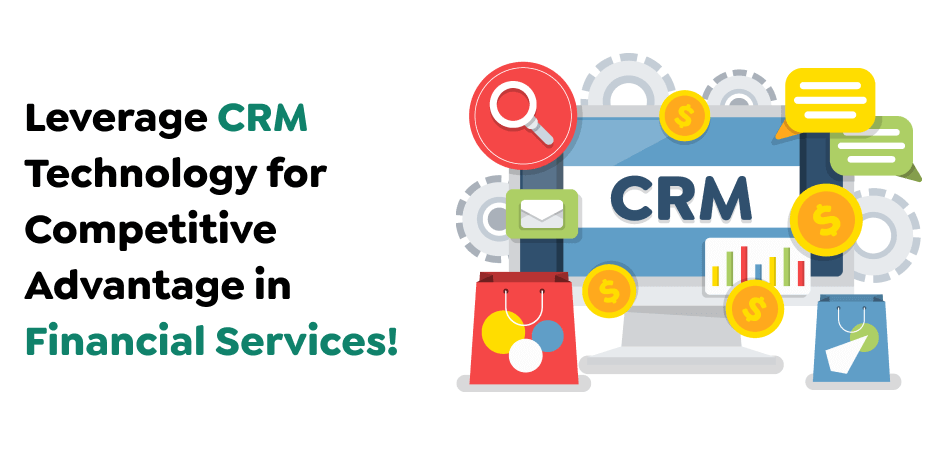
Customer relationship management systems are now critical tools that financial services organizations must acquire to serve their clients better, meet the demands of the regulators, and increase revenues. Current CRM solutions include functionalities such as client profile management, automation, compliance control, and analytics, which allow financial institutions to optimize all processes and offer high-quality services. Several platforms provide industry-based solutions, and these app development companies can choose their best CRM platform from Salesforce, Dynamics 365, or Zoho CRM, targeting finance-related industries.
Selecting and successfully deploying an appropriate CRM for a financial firm may take time and effort. Still, the benefits will be enormous if one keeps a clear vision of what they seek to achieve, puts a premium on data security, and embraces staff development programs. Following the recommendations, financial institutions can effectively leverage the opportunities embedded in CRM’s latest technology to establish and sustain the much-needed functional and enduring relationship with clients, thereby establishing a competitive advantage in the current financial environment.
Ready to transform your financial services with a tailored CRM solution that meets your unique needs? Get in touch with Techugo today, and let’s embark on this journey together!
Write Us
sales@techugo.comOr fill this form